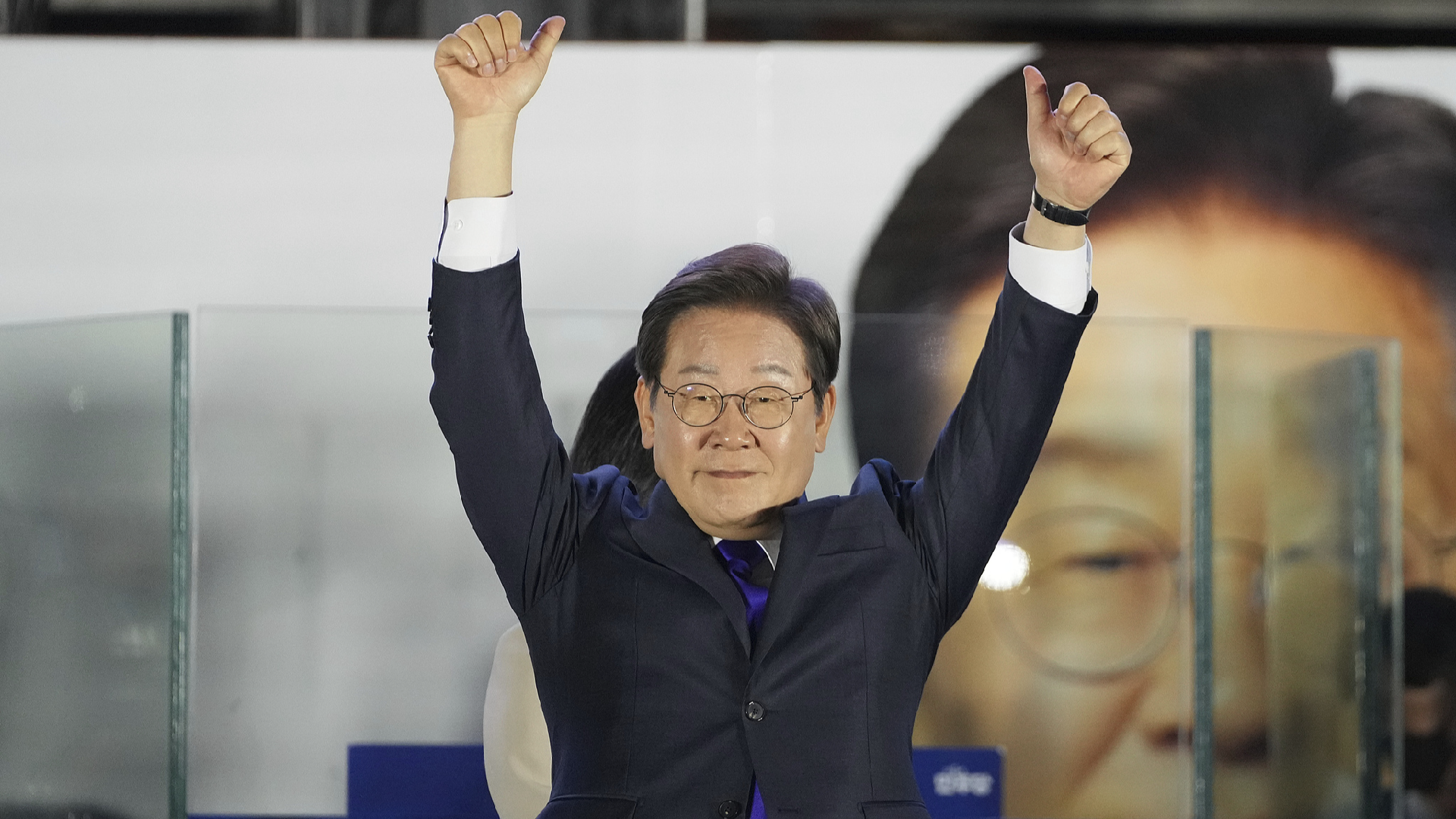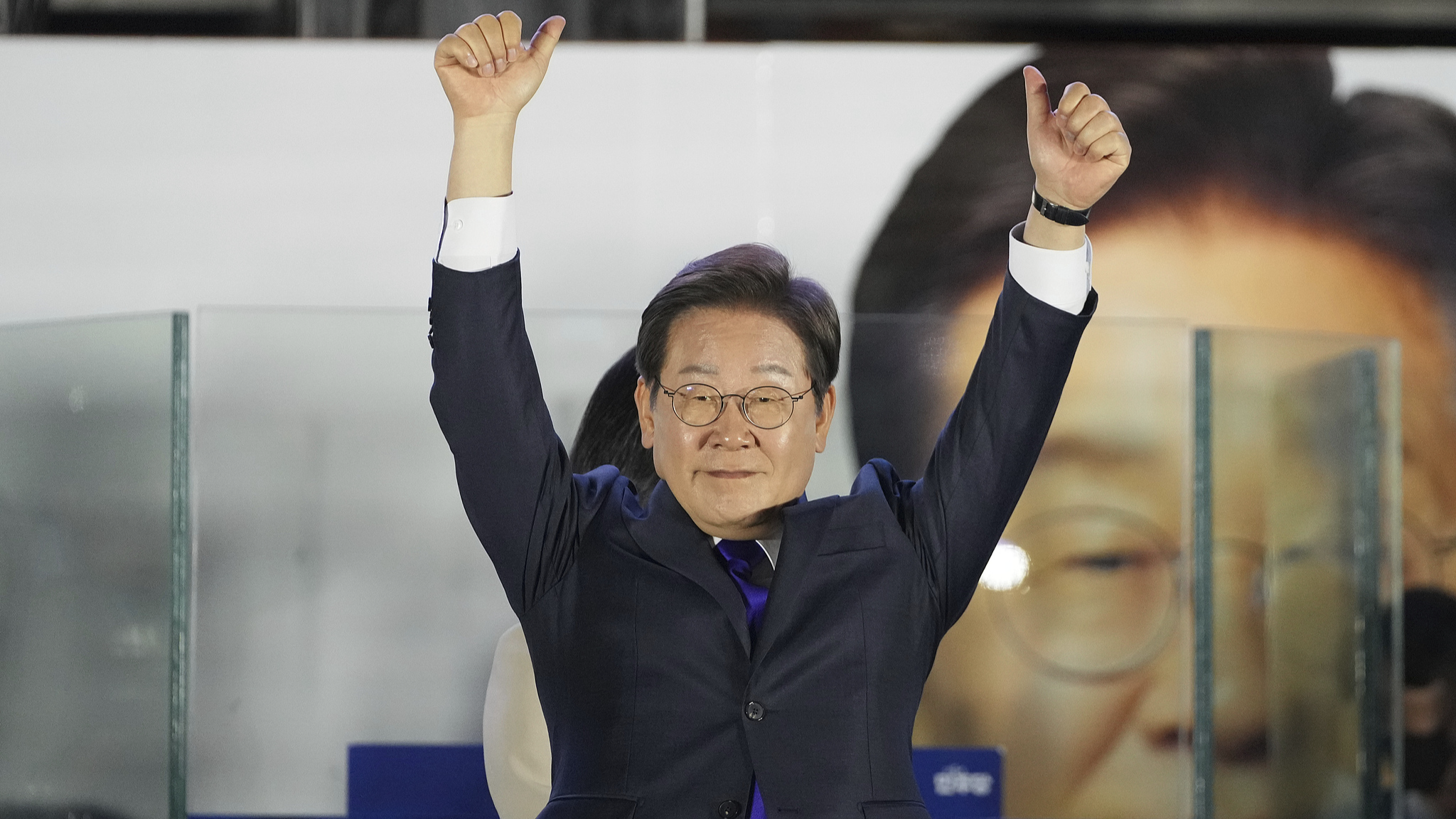Who Is Lee Jae-myung? South Korea's New President Leading the Future of Korean Politics
Lee Jae-myung, South Korea's newly elected president, vows to prioritize economic reform and social justice in his upcoming term.


Lee Jae-myung has been elected as South Korea's new president, marking a dramatic reversal of fortunes just three years after his razor-thin defeat in the 2022 election.
At 61, Lee's victory crowns a career forged far from the elite circles of South Korean politics. The former factory worker turned human rights lawyer has built a reputation as a combative populist who channels the frustrations of the working class – and, at times, the fury of his critics.
From factory floor to presidential palace
Born into poverty, Lee's early life contrasts sharply with South Korea's technocratic political class. He dropped out of school and worked in factories from a young age to support his family, suffering a disabling elbow injury in an industrial accident.
His fortunes changed when he earned a scholarship to study law. Passing the country's notoriously difficult bar exam, Lee began his career as a lawyer defending labor and human rights – experiences that would shape his political image as a champion of the underprivileged representing the Democratic Party.
Lee previously served as mayor of Seongnam, south of Seoul, for eight years. In that role, he helped shut down what had been the country's largest dog meat market – ending a trade that had once involved 80,000 canines a year.
Elected mayor of Seongnam in 2010 and re-elected in 2014, Lee later became governor of Gyeonggi Province from 2018 to 2021 – the country's most populous region surrounding the capital. He has drawn criticism for what opponents call his abrasive political tone and opportunistic populism, delivering fiery, sometimes polarizing speeches, especially during national crises or political standoffs.
A presidency born of turmoil
Lee's rise comes amid one of South Korea's most turbulent political chapters. In December 2024, former president Yoon Suk-yeol shocked the nation by declaring martial law in a televised address. Lee, then the chairman of the Democratic Party, raced to parliament to vote against the decree. In dramatic scenes streamed live to millions, he climbed a perimeter fence to enter the National Assembly and rally lawmakers.
The decree was overturned, and by April 2025, Yoon had been impeached and removed from office by the Constitutional Court. Lee emerged as the face of the resistance and a symbol of restored civilian rule.
Legal clouds over a political comeback
Despite his electoral success, Lee enters office under legal scrutiny. He faces five criminal trials – including allegations of corruption tied to a real estate development project and violations of election law. He has denied any wrongdoing and described the cases as politically motivated.
In May, South Korea's Supreme Court overturned an earlier acquittal, ordering a retrial. However, the case has been delayed until after the June 3 vote, and under South Korean law, sitting presidents are immune from most criminal prosecutions. The trials are unlikely to resume before 2030, when his term ends.
His critics argue that the charges disqualify him from leadership. During a televised debate, conservative challenger Kim Moon-soo questioned, "With these kinds of corruption allegations, how can you seek public office?"
Looking ahead: promises and limits
Lee takes office with a parliamentary majority – a rarity in South Korea's often gridlocked political system. That gives him a potentially powerful mandate, but also raises concerns of overreach.
He has promised to invest heavily in artificial intelligence, aiming to make South Korea one of the top three global players in the field. Lee has also pledged to prosecute those involved in the attempted martial law decree, vowing to "bring insurrection elements to justice."
Still, analysts say his ability to govern will depend on whether he can maintain support beyond his progressive base and deliver results without deepening political divides.
Lee has said he would address urgent economic challenges facing the country on the first day in office, with a focus on the cost-of-living concerns affecting middle- and low-income families and the struggles of small business owners.
He also faces a looming deadline set by the White House on negotiating import duties, adding further complexity to the agenda awaiting South Korea's new leader.




